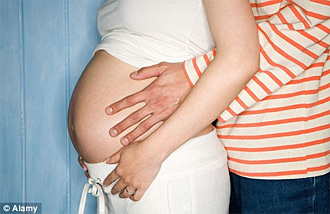
|  |  |  Health & Beauty Health & Beauty  
Sex Will Not Be Used to Have Babies in Just 10 Years, as Couples Turn to IVF
 Daniel Martin - Daily Mail UK Daniel Martin - Daily Mail UK
go to original
May 17, 2010


| | Dying art: IVF could become better than sex for making babies - leaving the physical act purely as a means of giving pleasure. |  |
Couples will stop having sex to conceive babies within a decade and use IVF instead, scientists said yesterday. They say 30-somethings will increasingly rely on artificial methods of fertilisation because natural human reproduction is 'fairly inefficient'.

It means that in future, sex will be nothing more than a leisure activity - the latest blow to the Christian idea that the role of sex is to produce children.

If the experts are right, it means the sci-fi world of books such as Brave New World, in which all children are born in 'hatcheries', could soon be closer to reality.

And it raises ethical questions over whether greater use of IVF will lead to eugenics, with couples screening out characteristics they regard as undesirable.

The startling vision of the future comes from John Yovich, a veterinary doctor from Murdoch University in Perth, Australia.

He believes IVF can ease the pressure on couples who have delayed having children to pursue a career, because going for the test-tube option will be more effective than trying for a baby naturally.

Even young adults have no more than a one-in-four chance every month of reproducing through sex. Among the over-35s, this falls to one in ten.

This compares to the near 100 per cent success rate that Dr Yovich believes will be possible with IVF within ten years.

Dr Yovich, co-author of a new report in the journal Reproductive BioMedicine, said: 'Natural human reproduction is at best a fairly inefficient process.

'Within the next five to ten years, couples approaching 40 will assess the IVF industry first when they want to have a baby.' He based his hunch on the fact that in cattle, IVF works almost every time. He said there was no reason that success rate could not be replicated in humans.

His co-author, fellow Australian vet Gabor Vajta, said test-tube embryo production in cattle was 100 times more efficient than natural means. He said there was no reason why IVF in humans should not become 100 times more efficient than sex.

At present, IVF has only a 50 per cent success rate - among the most healthy couples.

Gedis Grudzinskas, a Harley Street infertility specialist, said: 'It wouldn't surprise me if IVF does become significantly more efficient than natural reproduction, but I doubt whether you could ever completely guarantee that it would work.'

In Aldous Huxley's 1932 novel Brave New World, human reproduction has been done away with and is replaced by a hatching process, in which groups of identical children are produced from surgically-removed ovaries and incubated in bottles. |

 |
|  |



